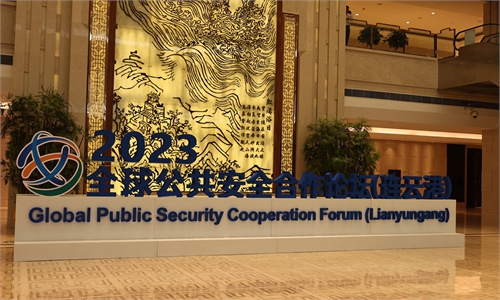
Sina Weibo app Photo: VCG
Many social media accounts with 500,000 or one million followers can now voluntarily disclose their real names or names of companies that they work for on Wednesday, after platforms announced to scrap anonymity of influential self-media accounts.
The Global Times noticed that the new policy has been well received by most of social media creators and ordinary netizens, hailing it a reasonable approach, since the adjustment to disclose influencers' real names has not been made mandatory.
Users can choose to give up certain benefits and be restricted from accessing certain content by opting out of the real-name demonstration system. This approach is more user-friendly and offers multiple choices, they wrote.
However, some accounts continue to use anonymous names, risking restrictions on account traffic and earnings in the future. Some accounts claimed they will withdraw from the platforms over concerns of boxing.
The new adjustment released by Chinese social media platforms, including Sina Weibo, WeChat, Douyin, Kuaishou, Bilibili, Xiaohongshu, and Baidu, have invited social media accounts with a certain number of followers in fields such as military affairs, finance, law, and healthcare to display their real names.
Users who agree to provide real name information will have their relevant information displayed on their account profile page. Users who do not agree to provide real name information will face restrictions on account traffic and earnings.
The real-name display policy will be applied to social media influencers with different amount of followers as platforms vary and all said that the policy will be implemented in phases. Sina Weibo, WeChat, Kuaishou, Bilibili and Xiaohongshu and Baidu are applying the adjustment on accounts with 1 million followers and later on will gradually cover accounts with 500,000 followers. Douyin and Zhihu will begin with accounts with 500,000 followers.
Inviting influencers to display their real name is being viewed as a move to optimize cyberspace environment as it contributes to raise their awareness of being public speakers, said Wang Sixin, a consulting expert for Cyberspace Administration of China.
In China, new media such as social media, short videos, and live streaming have taken over the role of traditional print media and television as the main source of news and updates of information for many people.
The disclosure policy, on the other hand, is expected to deter certain profit-oriented public accounts that have been actively contributing to the dissemination of false information and causing confusion, Wang said.
Zhu Wei, a vice director of the Communication Law Research Center at the China University of Political Science and Law, told the Global Times the anonymity of the internet encourages some netizens to be fearless and be able to hide behind the alias of account to release rumors, false information and carry out black public relations activities.
"Any policy has advantages and disadvantages, and from the perspective of cleaning up the cyberspace, the advantages of the online real-name system outweigh the disadvantages," Zhu said.
On netizens' concerns about the infringement of personal privacy after real names are revealed, Zhu said supporting measures to address cyber violence and rights infringement are needed to address the potential problems in cyberspace.
In response to the potential risk of online bullying, Douyin announced that it will establish anti-online bullying protection mechanism by launching a "One-Click Anti-Online Bullying" function to quickly handle related complaints and reports. Warnings or muting, and account suspension will be taken against accounts involved in online bullying, depending on the severity of the situation, Douyin said.
Wu Shenkuo, executive Director of the Internet Rule of Law International Center at Beijing Normal University, told Hongxing News that although such risks do exist, they are not caused by the real-name display policy itself. Wu said it should be viewed and prevented from a broader perspective of cyberspace ecosystem governance.
It is for this reason that the real-name display mechanism will be implemented in stages and in a cautious manner, in order to ensure the maximum interests of internet users are guarded, Wu noted.



